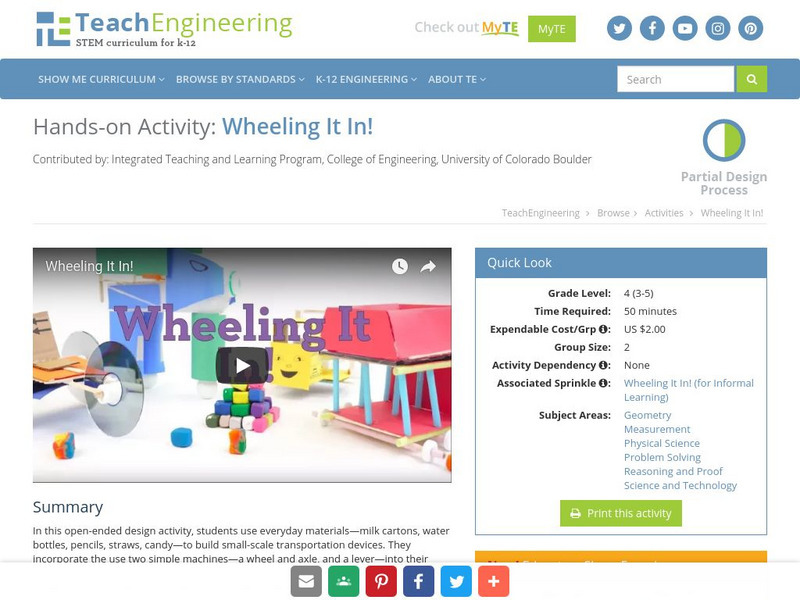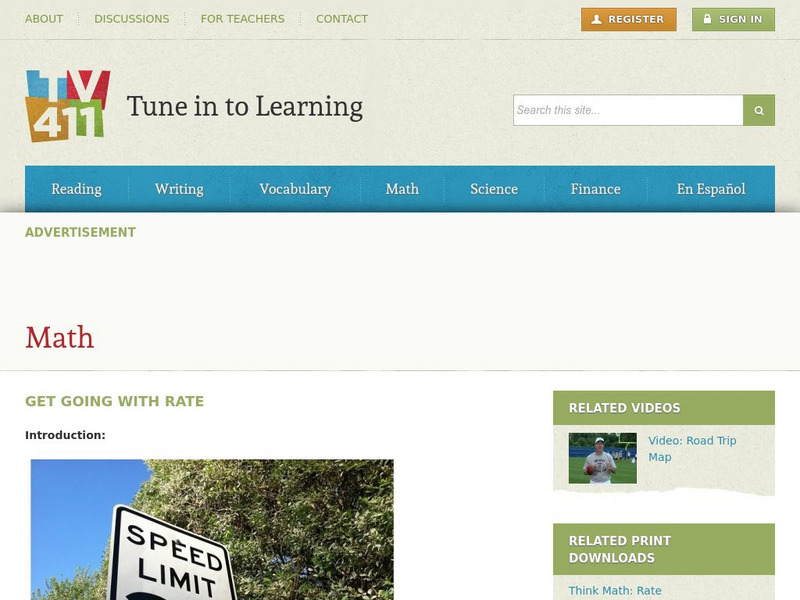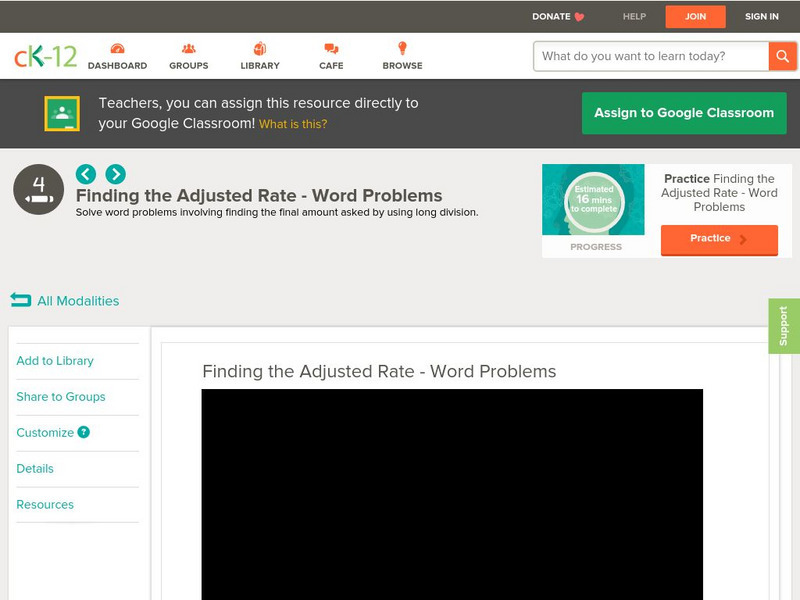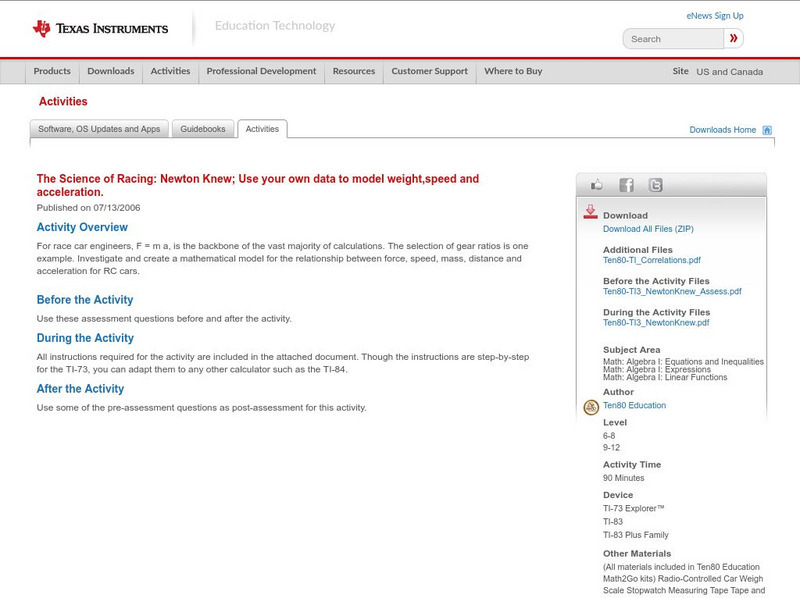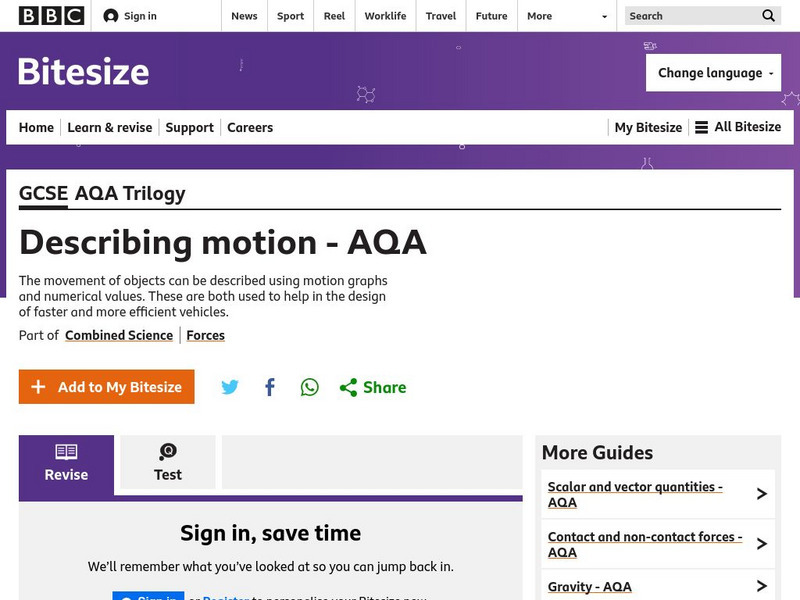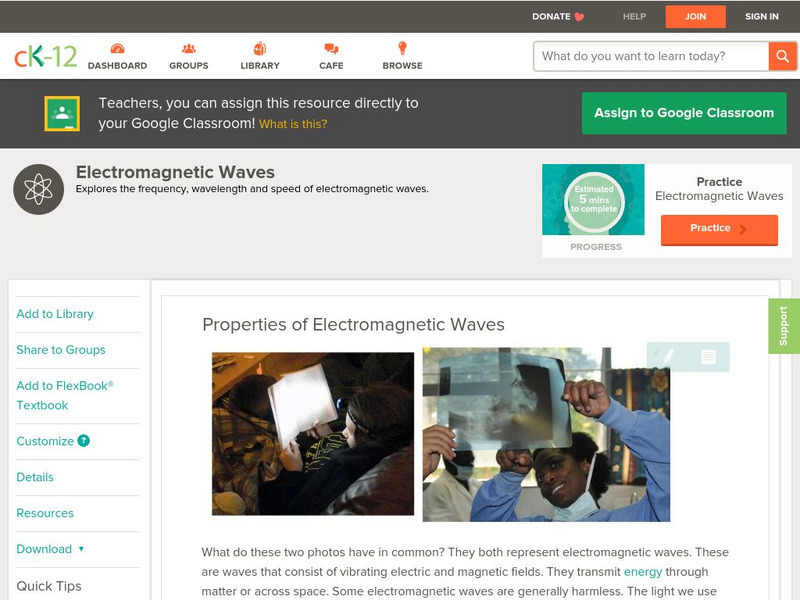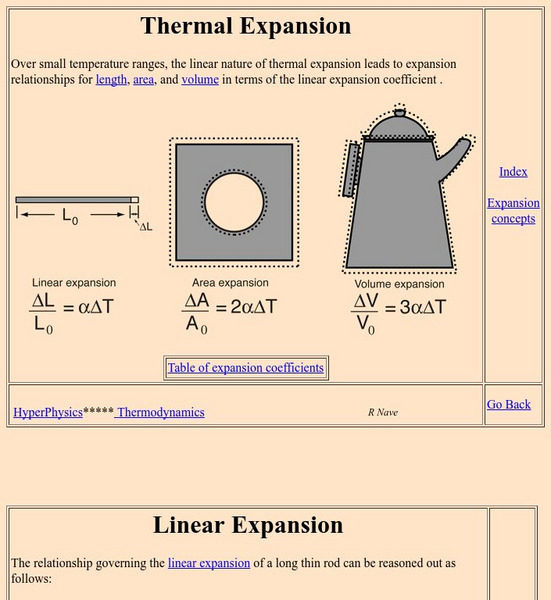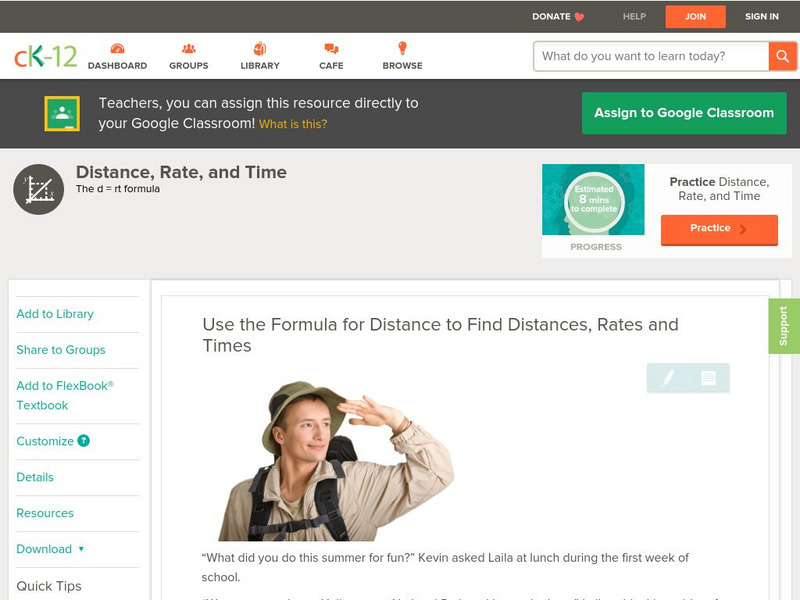Hi, what do you want to do?
TeachEngineering
Teach Engineering: Wheeling It In!
In an open-ended design activity, students use everyday materials (milk cartons, water bottles, pencils, straws, candy) to build a small-scale transportation device. They incorporate the use of a wheel and axle, and lever into their...
University of Cambridge
University of Cambridge: Nrich: Bike Ride
On this one page website sharpen your logic and rate measurement skills while working on this challenge. The solution is available to double check your solution.
University of Cambridge
University of Cambridge: Nrich: Walk and Ride
On this one page website sharpen your logic and rate measurement skills while working on this challenge. The solution is available to double check your solution.
University of Cambridge
University of Cambridge: Nrich: The Hare and the Tortoise
On this one page website sharpen your logic and rate measurement skills while working on this challenge. The solution is available to double check your solution.
Education Development Center
Tune in to Learning: Get Going With Rate
Explore the concepts of rate, distance, and speed in this interactive lesson. Discover how to use formulas to solve word problems and calculate salaries. A concise lesson with excellent examples, connections to real world experiences,...
PE Central
Pe Central: Pe Lesson Ideas: How Far to Mount Katahdin
Organized into 5 parts, this lesson combines physical activity with academic subjects including math, health, and geography. In part I, students calculate how many steps it would take to complete the Appalachian Trail. In parts II and...
Ministry of Education and Universities of the Region of Murcia (Spain)
Ministerio De Educacion Y Ciencia: Tasa De Variacion De Una Funcion
In Spanish. In this interactive activity you will learn and understand the concept of average and instantaneous speed and calculate the average and instantaneous variation of some functions.
CK-12 Foundation
Ck 12: Elem Math: Finding the Adjusted Rate Word Problems
[Free Registration/Login may be required to access all resource tools.] In this learning module, students must solve word problems where they must calculate the change in a rate or speed. Includes video demonstrating a sample problem...
TED Talks
Ted: Ted Ed: How Simple Ideas Lead to Scientific Discoveries
Educator, Adam Savage, shares two astounding examples of profound scientific discoveries that came from simple, creative procedures: Eratosthenes' calculation of the Earth's circumference and Hippolyte Fizeau's measurement of the speed...
Texas Instruments
Texas Instruments: The Science of Racing: Newton Knew
For race car engineers, F = m a, is the backbone of the vast majority of calculations. The selection of gear ratios is one example. Investigate and create a mathematical model for the relationship between force, speed, mass, distance and...
BBC
Bbc: Gcse Bitesize: Describing Motion Aqa
This lesson focuses on Distance-time graphs; the gradient of a distance-time graph represents the speed of an object.
CK-12 Foundation
Ck 12: Physical Science: Properties of Electromagnetic Waves
[Free Registration/Login may be required to access all resource tools.] The speed of electromagnetic waves, their wavelengths and frequencies and how to calculate wavelength or wave frequency.
Visual Fractions
Visual Fractions: Platform Scale Subtraction
Weigh five little creatures on a metric scale, and subtract to find the mass to the hundredths place for each. A timer calculates your speed of computation.
Visual Fractions
Visual Fractions: Platform Scale Addition
Weigh five little creatures on a metric scale, and add to find their total mass to the hundredths place as each one joins the group. A timer calculates your speed of computation.
Georgia State University
Georgia State University: Hyper Physics: Temperature
A page describing the concept of temperature and temperature scales. An interactive JavaScript form allows the visitor to investigate the relationship between the Kelvin, Celsius and Fahrenheit scales; enter a value and allow the...
Georgia State University
Georgia State University: Hyper Physics: Expansion Concepts
An indexing page from Georgia State University Physics Department which includes links to various other pages with information pertaining to thermal expansion. From expansion coefficients to equations to calculation and practice pages,...
Georgia State University
Georgia State University: Hyper Physics: Area Expansion
The concept of area expansion is presented and explained. An equation for calculating the amount of area expansion is provided.
Georgia State University
Georgia State University: Hyper Physics: Relativistic Energy
A mathematically understandable presentation of relativistic energy. Parts include Relativistic Energy, Rest Mass Energy, Conservation of Energy, Pair Production, Relativistic Kinetic Energy, and even Kinetic Energy. A couple of...
University of Virginia
University of Virginia: Kinetic Theory, a Brief Review
The derivation of the Boltzmann distribution in detail. Shows calculations and graphs, with links to animations and video to further explain.
CK-12 Foundation
Ck 12: Algebra: Formulas for Problem Solving
[Free Registration/Login may be required to access all resource tools.] Calculate distances, rates and times by using formulas
Texas Instruments
Texas Instruments: Classroom Activities: Parachuting
This activity explores a parachutist and her position, velocity and acceleration. Graphing and calculating these functions will be required.
Science Education Resource Center at Carleton College
Serc: Discovering Velocity Outside of the Classroom
A physics lab activity where students gather data from classmates running at different rates on a football field. They then share their gathered data and transfer it to a graphing program to ultimately calculate average velocity.
Physics Aviary
Physics Aviary: Practice Problems: Triangle Problems
Students must show they are able to find the components of a velocity vector and that they can calculate the velocity vector from the components. Students must be able to get 5 in a row correct to receive credit for this assignment.
University of Texas at Austin
The University of Texas Mc Donald Observatory: Super Gelatin
Students measure the angles of refraction of laser light traveling through gelatin, then plot their data to calculate the gelatin's index of refraction.
Other popular searches
- Calculating Speed Distance
- Calculating Speed Lab
- Calculating Speed Problems
- Calculating Speed of Light
- Calculating Speed Toy Cars
- Physics Calculating Speed
- Calculating Speed of Stars
- Calculating Speed Tickertape
- Calculating Speed Worksheets
- Calculating Speed Ticker Tape
- Calculating Speed of Sound
- Calculating Speed Stars





